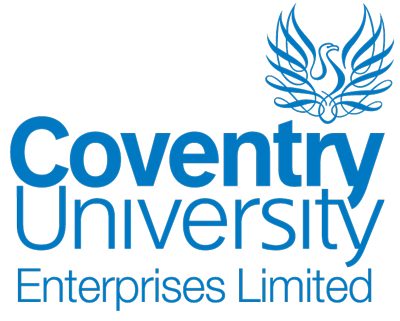Enhancing Medical Diagnosis and Reducing Errors through AI and Human Bias Awareness
Discover how AI transforms medical diagnosis, boosting accuracy, efficiency, and speed. This isn't sci-fi—it's real progress! Learn how overcoming human biases with AI aids doctors in making better decisions for patient care. #MedicalInnovation #AIDiagnosis
Introduction
The field of medical diagnosis has seen some pretty fantastic advancements in recent years, with artificial intelligence (AI) playing a starring role. But we're not talking about a sci-fi movie here - this is real life! By being aware of human biases and leveraging the power of AI, doctors and the general public can benefit from improved diagnostic accuracy, efficiency, and speed. In this article, we will discuss the role of AI in medical diagnosis, recent advancements, and how we can tackle those pesky human biases to make even better decisions for patients.
AI in Medical Diagnosis: A Shiny New Tool
AI has the potential to revolutionize medical diagnosis by analyzing large amounts of data and identifying patterns that may not be visible to our amazing, but sometimes fallible, human eyes. Examples include detecting breast cancer on mammograms, identifying skin cancer from images, and predicting heart disease risk based on medical records. With AI being used in various fields such as radiology, pathology, and dermatology, the benefits are clear: increased accuracy, efficiency, and speed. It's like having a super-smart sidekick!
Addressing Challenges: It's Not All Sunshine and Rainbows
Despite the benefits, there are challenges that need to be addressed when using AI for medical diagnosis. One such challenge is the need for large amounts of data for training AI algorithms. Additionally, potential biases in the data used can lead to inaccurate or biased results. By being aware of these challenges, doctors can work to ensure that AI is used effectively and ethically in medical diagnosis. Just like how Batman needs Robin, AI needs human guidance to reach its full potential.
Recent AI Advancements: The Plot Thickens
Recent advancements in AI have led to the development of new tools and techniques that can further improve medical diagnosis. For example, researchers have developed AI algorithms that can analyze medical images and accurately detect diseases such as lung cancer and diabetic retinopathy. Additionally, AI has been used to predict patient outcomes and develop personalized treatment plans based on individual patient data. It's like having a crystal ball that can see into the future of medicine!
Combating Human Biases: Our Kryptonite
It is essential for doctors and the general public to be aware of human biases when making a diagnosis. By recognising and addressing these biases, healthcare professionals can ensure that they are making accurate and unbiased diagnoses. For instance, confirmation bias may lead a doctor to only seek evidence that supports their initial impression, while availability bias could result in a diagnosis based on recent or memorable cases rather than actual probabilities. Incorporating AI into the diagnostic process can help to mitigate the impact of human biases by providing objective, data-driven insights. So, let's team up with our AI sidekicks and tackle those biases together!
The Doctor's Diagnostic Journey: A Tale of AI and Human Experience
Now, let's consider a doctor's diagnostic journey for a patient who presents with abdominal pain, suggestive of constipation, but where biliary colic and cholecystitis are also possible. The doctor starts by considering the base rate of these conditions and avoiding confirmation bias by seeking evidence that either supports or refutes each possible diagnosis. They then turn to ChatGPT for assistance, inputting the patient's symptoms and medical history. ChatGPT analyzes the data and suggests potential diagnoses, probabilities, and evidence-based recommendations.
However, the doctor doesn't just rely on AI; they also use information from their clinical examination and trust their gut feeling, which is an invaluable product of their human experience. This is why, in my humble opinion, AI will never replace humans in diagnosing humans. Instead, AI serves as a powerful tool, just like an X-ray or a stethoscope, to help doctors make better decisions.
Health Professional CPD Course Finding App: Keep Learning, Keep Growing
To stay updated on the latest advancements in AI and medical diagnosis, healthcare professionals can benefit from continuous professional development (CPD) courses. With fellow Locum GP Dr Ben Coyle, I created a CPD Course Finding platform SimplyCPD.co.uk to serve as a valuable resource for finding relevant courses and staying informed about the latest developments in AI and medical diagnosis. You know what they say, "knowledge is power," so keep learning and growing with the help of this handy app!
Conclusion: A Dynamic Duo
The use of AI in medical diagnosis has the potential to significantly improve diagnostic accuracy, efficiency, and speed. By being aware of human biases and leveraging the power of AI, doctors and the general public can benefit from enhanced diagnoses and reduced errors. As AI continues to advance, it is crucial for healthcare professionals to stay informed about the latest developments and incorporate these technologies into their practice. After all, humans and AI working together in harmony make for a dynamic duo that can truly revolutionise the world of medical diagnosis. So, let's embrace this partnership and create a healthier, happier future for all!
Acknowledgements: A Nod to GPT-4 and Past Writings
This article was written with the invaluable help of GPT-4, which was tasked with combining information from two previous articles written by myself. The first article, titled "You are bound to misdiagnose unless you avoid these common mistakes! 5 biases to be aware of when making clinical decisions," was published on June 16, 2019, and can be found here: https://www.facebook.com/SimplyCPD/posts/1768621093437156. The second article, "Google to help diagnosis is tired. We want AI...!" was published on June 9, 2019, and is available here: https://www.facebook.com/SimplyCPD/posts/1764658310500101. A special thank you to GPT-4 for its assistance in creating this engaging and informative piece!
The author: Amine Boughellam is a GP Partner and Co-Founder of SimplyCPD
You may also be interested in...
Our latest courses
13 Goldhill Road
Leicester,
LE2 3LE


